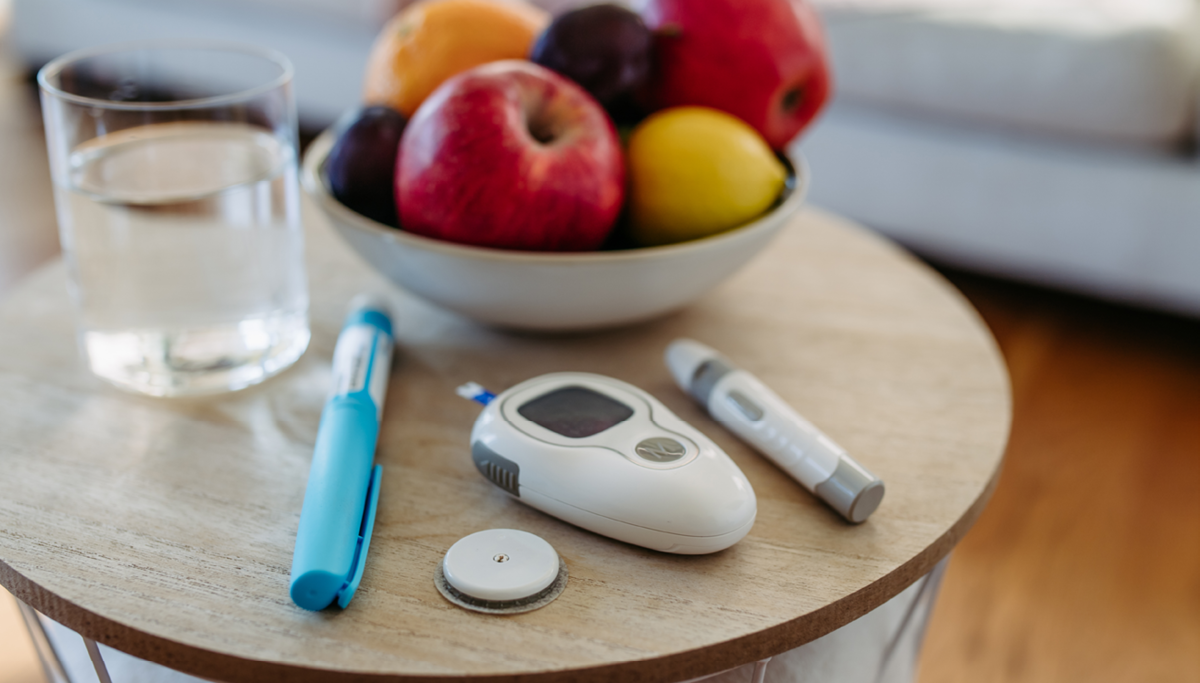Diabetes and Your Teeth: How Managing Diabetes Helps Your Oral Health
*Updated November 2024
Diabetes is a chronic condition that affects millions of people in the United States. According to the Centers for Disease Control and Prevention (CDC), an estimated 38.1 million people live with diabetes, and around 8.7 million people meet the criteria to have diabetes but are undiagnosed.
As the number of individuals affected by this condition continues to rise, it's crucial to understand the broader impact diabetes can have on overall health—including oral health.
What is diabetes?
Diabetes is a chronic condition where the body struggles to regulate blood sugar levels due to either insufficient insulin or insulin resistance. In type 1 diabetes, the body doesn’t produce insulin, requiring daily insulin management. In type 2 diabetes, the body becomes resistant to insulin or doesn’t produce enough, which is often linked to lifestyle factors. These lifestyle factors include being overweight, eating unhealthy, lack of physical activity, or have a family history of diabetes. Gestational diabetes occurs during pregnancy but can raise the risk of type 2 diabetes later.
When left unmanaged, diabetes can lead to complications like heart disease, kidney damage, vision problems, and oral health issues.
How diabetes impacts oral health
Diabetes impacts nearly every part of the body, including the mouth. People with diabetes are more prone to developing specific oral health issues due to fluctuating blood sugar levels. To preserve stable blood sugar levels, remember to exercise, maintain healthy diet, and stay hydrated.
Some of the most common oral health side effects of diabetes include:
- Dry mouth: Diabetes can reduce saliva production, leading to dry mouth, which increases the risk of tooth decay and gum disease.
- Oral thrush: Higher glucose levels in saliva can create an environment for fungal infections, such as oral thrush.
- Gum disease (Gingivitis and Periodontitis): People with diabetes have a heightened risk of gum disease, which, if untreated, can lead to tooth loss and infections.
Diabetes and gum disease
One of the most significant oral health risks for people with diabetes is gum disease. High blood sugar levels can lead to elevated glucose in saliva, which encourages bacterial growth and increases the risk of gum infections. Severe gum disease, also known as periodontitis, is a cause of tooth loss in adults.
It's important to understand that the connection between diabetes and gum disease is cyclical. Not only does diabetes increase the likelihood of gum disease, but severe gum disease can also make it harder to manage blood sugar levels, further complicating diabetes control.
How diabetes affects gum disease treatment
Diabetes not only increases the risk of developing gum disease but also impacts the body's ability to heal after treatment for periodontal disease. This makes early prevention and treatment of gum disease crucial for individuals with diabetes. Routine dental check-ups and proper management of diabetes can help reduce the risk of severe gum complications.
Tips for managing diabetes and protecting your oral health
Managing diabetes effectively plays a critical role in maintaining oral health. Here are some tips to help you keep your mouth healthy if you are living with the condition:
- Control blood sugar levels: Maintaining stable blood sugar levels is essential not just for overall health but also oral health. Uncontrolled diabetes increases the risk of gum disease, dry mouth, and infections.
- Practice good oral hygiene: Brush your teeth twice a day and floss daily to reduce the risk of gum disease and cavities.
- Inform your dentist about your diabetes: Always let your dentist know about your diabetes diagnosis. This will help them tailor your treatment plan and monitor potential signs of gum disease or other oral health issues more closely.
- Schedule regular dental check-ups: Visit your dentist at least twice a year for preventive cleanings and check-ups. Early detection of gum disease or other oral problems is crucial in managing them before they worsen.
- Quit smoking: Smoking can exacerbate gum disease and increase the risk of other oral health issues. For people with diabetes, quitting smoking is one of the most effective steps you can take to protect your mouth.
- Monitor your gums: Pay attention to any signs of gum problems, such as swelling, redness, bleeding, or pain. If you notice any new symptoms, contact your dentist immediately to prevent the issue from progressing.

